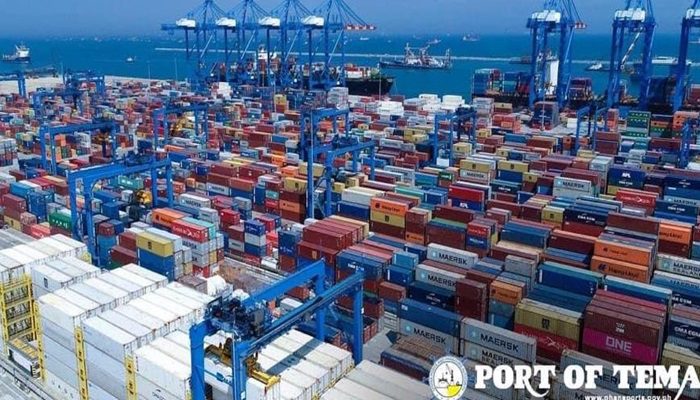Opioid drugs worth approximately GH₵20 million have been intercepted at Tema Port.
The shipment was en route to Niger, its final destination.
This was made possible through the efforts of the Customs Division of the Ghana Revenue Authority (GRA), in collaboration with other stakeholders.
Following this, Minister of Health Kwabena Mintah Akandoh reaffirmed the government's commitment to preventing Ghana from being used as a transit point for opioid trafficking.
“Inasmuch as we are interested in facilitating trade in this country, we will not allow Ghana to be a safe haven for opioids. And let me tell you that the president is personally interested in this matter. On my way here, he called me twice, and it tells you how important and critical this particular issue is,” he told journalists at the port.
The seized shipment included Rahol Tapentadol 250 mg – 26 cartons; Tafradol Tapentadol 120 mg – 160 cartons; Timaking Tapentadol 120 mg – 40 cartons; Loperamide 2 mg – 190 cartons; Chlorpheniramine Maleate – 320 cartons.
On March 1, a Fellow in Public Health at the Centre for Democratic Development (CDD), Dr. Kwame Sarpong Asiedu, called on the Customs Division of the GRA to provide answers on how illegal opioids entered the country.
Speaking on Newsfile on JoyNews on Saturday, 1st March, Dr. Asiedu described the situation as alarming, following the BBC exposé on the influx of dangerous opioids.
He pointed out that the seizure of the drugs by the Food and Drugs Authority (FDA) confirms that they entered the country through Ghana’s ports. However, he noted that it was the Narcotics Control Commission (NACOC) that acted on intelligence to intercept them.
“The products being seized by the FDA means they got through our ports. It was NACOC that had intel which led to the seizure. So that is complete confirmation that these drugs are entering through our ports, and that is scary,” he stated.
Dr. Asiedu emphasised that Customs, as the custodians of the country’s entry points, including Tema, Takoradi, and Kotoka International Airport, must be held accountable. He explained that medicines are regulated products, meaning both the FDA and NACOC should be informed before clearance.
“If these containers got out of our ports without the knowledge of NACOC and the FDA, it means there is some level of complicity from Customs because the drugs did not go through the right channel,” he said.
He further raised concerns about weak collaboration between agencies responsible for securing the country’s drug supply chain.
Latest Stories
-
Nearly 50 people killed in South Africa floods
1 hour -
Kenya’s Ruto says blogger died at hands of police, shifting official account
2 hours -
Calm returns to Los Angeles after hundreds arrested
2 hours -
‘We’re working overnight, but we can’t publish everything’ – Deputy AG Srem Sai
2 hours -
ORAL process is not slow, its moving fast, Deputy AG Srem Sai tells Joy News
2 hours -
Ex-convict remanded over alleged romance scam, sextortion
3 hours -
Court remands suspect over Nsawam-Adoagyiri riot
3 hours -
Police arrest fake doctor over fraud
3 hours -
‘For the sake of truth’: A Weinstein victim’s decision to take the stand again
4 hours -
Ablekuma West MP Counsels BECE candidates
4 hours -
Horizons-China, SIL partners with V/R Minister to tackle menstrual hygiene
4 hours -
I started doing 3D drawing at age 11 – 16-year-old CEO reveals
4 hours -
Harvey Weinstein guilty of sexual assault after New York retrial
4 hours -
Menscook isn’t exclusively for the elite – Manager
4 hours -
It’ll not be all men forever – Menscook manager hints
5 hours

